There is a quiet change taking place in Arunachal Pradesh. Not big, but quite important. Pakke Tiger Reserve lies in South Western Arunachal Pradesh and is home to several Nyishi tribal villages. Late one morning in December 2011, a group of nine tribal headmen representing their villages, the dynamic Nyishi District Forest Officer (DFO) Tana Tapi, and researchers from the Nature Conservation Foundation’s (NCF) had gathered in a community hall. They were kicking off an innovative program – the Hornbill Nest Adoption Program. Starting in January 2012, it is aimed at protecting the slow-breeding hornbills from hunting and habitat loss. But what is novel about it is that it involves the community, a tribe that once used to hunt the hornbills. Hornbills have been traditionally hunted by the Nyishis for its beak/casque and meat. The upper beak/casque of the Great hornbill was used traditionally in the Nyishi headgear, called a Podum. Their headgear is now made of fiberglass.
NCF’s program employs these local tribal leaders to watch hornbill nests during the nesting seasons. Deforestation and hunting have traditionally threatened most of the hornbill species here. Since 2002 hunting has declined, thanks in large part to the cooperation from the Nyishi communities around Pakke driven by the untiring efforts of the DFO Tana Tapi. But deforestation still means fewer trees with nest holes increased competition between the hornbills. Long-term nest watching involving the communities themselves would likely stem these trends and protect hornbills.
The three-way partnership between NCF, the Nyishi community and the Forest Department promises to yield a strong conservation success story in Pakke.
Click here to know more about the Hornbill Nest Adoption Program.
(Visited 655 times, 2 visits today)
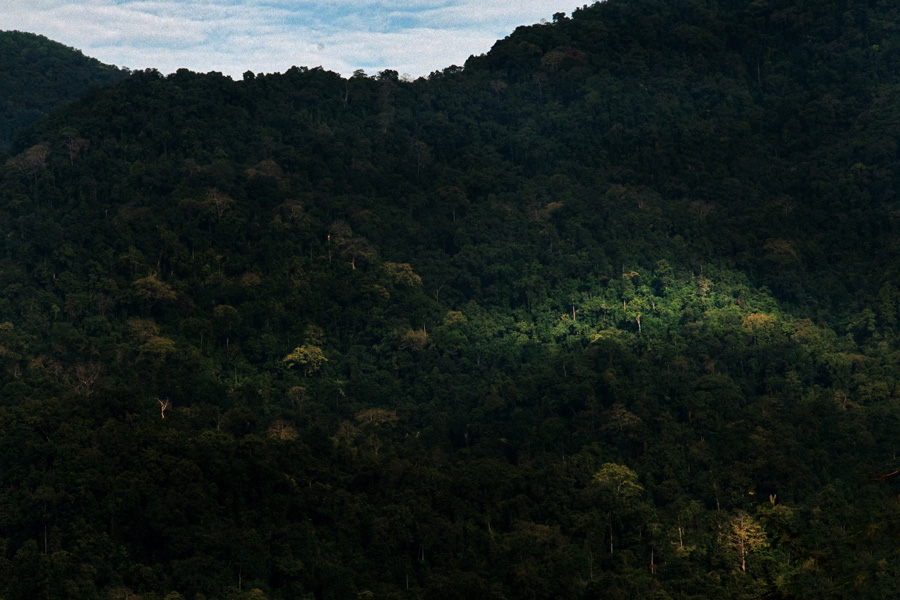
Pakke Tiger Reserve is a semi-evergreen forest spread over 861 sq. km. Besides being home to a whole host of birds, the forest supports a variety of mammals including elephants, gaur, wild pig, tigers, leopards, fishing cat, sambhar, barking deer, goral, giant squirrels, macaques, civets, mongooses and the binturong.
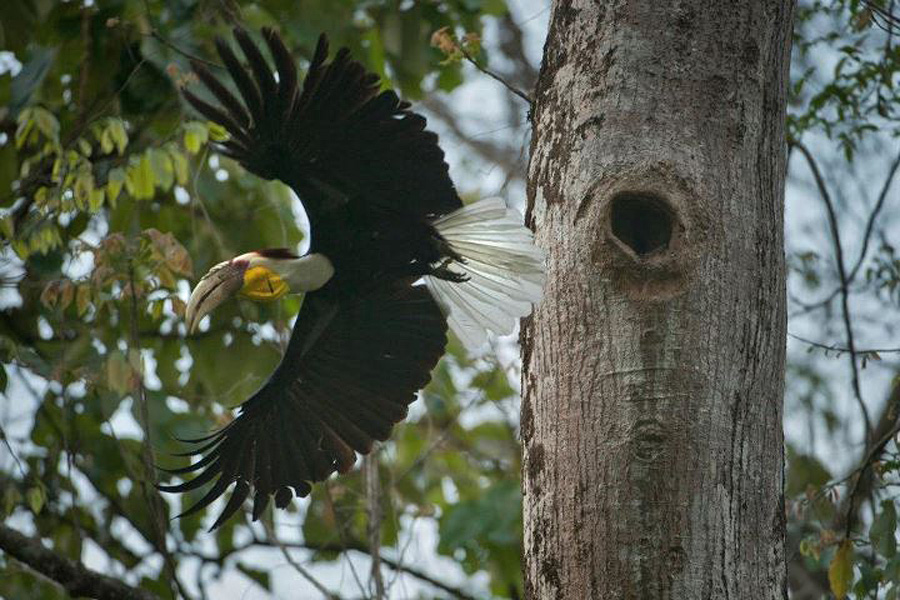
Deforestation and hunting have traditionally threatened most of the four hornbill species here (wreathed, rufous-necked, oriental pied and great). While NCF has been monitoring nesting sites inside the Pakke Tiger Reserve, the trees in the reserve forest (bordering the Tiger Reserve) are the ones most under threat. This new program will start monitoring those trees, which if lost, will leave the hornbills very vulnerable. Pic credit: Kalyan Varma.
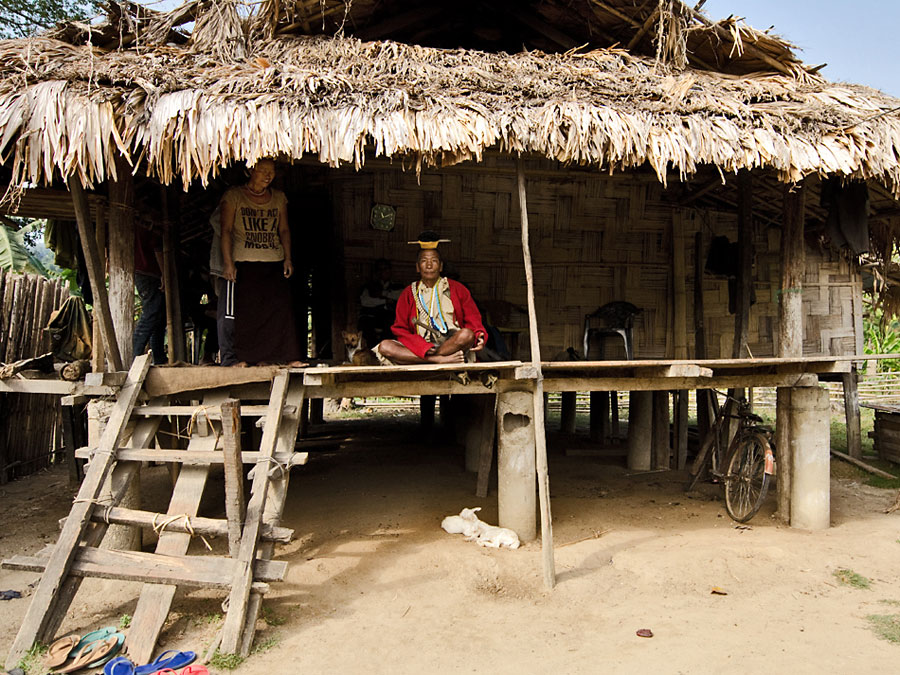
Pakke is home to the Nyishis – a traditionally proud community. The Great Hornbill has been traditionally hunted by the Nyishis for its beak/casque and meat.
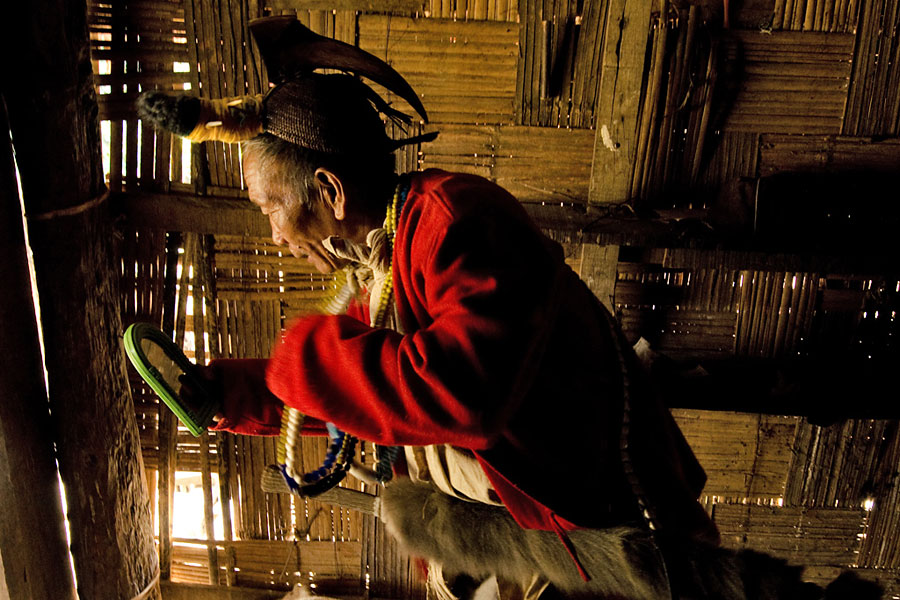
The upper beak/casque of the Great hornbill was used traditionally in the Nyishi headgear, called a Podum. Tajek Wage (seen here) was an ace hunter and knows many of the nesting sites of the hornbill. Today, as a Gaon Burrah (village elder), he is at the forefront of the nest-watching effort.
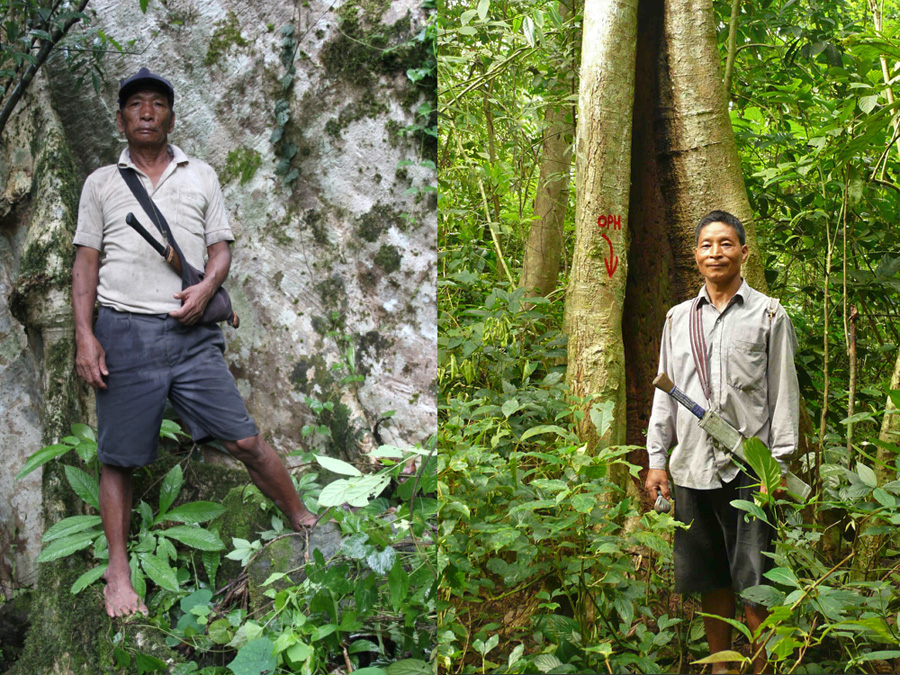
The nestwatchers have identified 28 new nesting sites and have been monitoring it all season long. Tajek Wage, 65, believes that this is the right thing to do. Having given up their casque-headdress for an artificial one , he now says, “protecting our ancestral home with all its inhabitants – which we believe are sacred, is important.” Pahi Tachang (on the right) believes that education for the future generation has to be worth their while, for them to carry the torch on conservation. Pic Credit: Amruta Rane & Swati Sidhu.
About the author
Arati Rao
Arati Rao is a Bangalore-based photojournalist.
Comments






 CI is a non-profit, non-commercial portal that aims to facilitate wildlife and nature conservation by providing reliable information and the tools needed to campaign effectively.
CI is a non-profit, non-commercial portal that aims to facilitate wildlife and nature conservation by providing reliable information and the tools needed to campaign effectively.